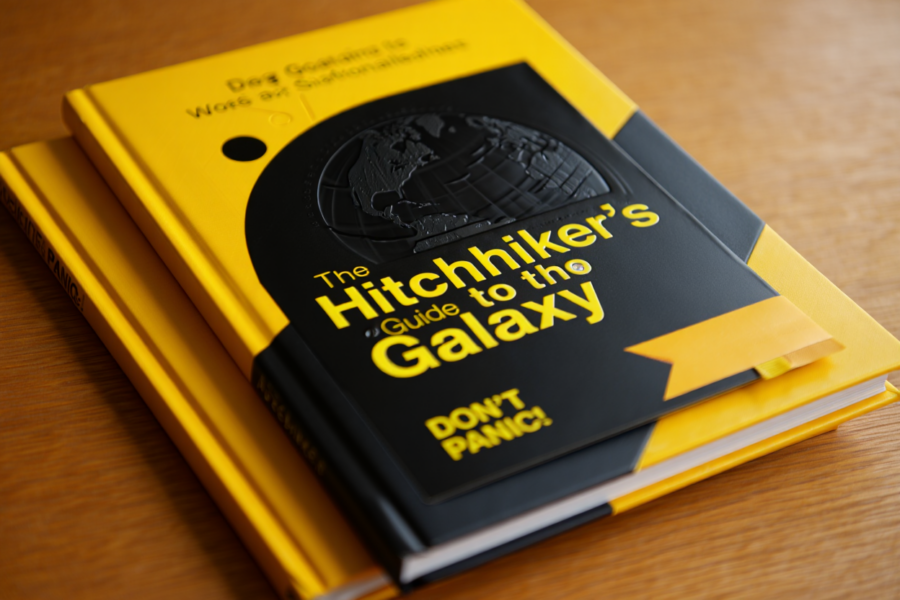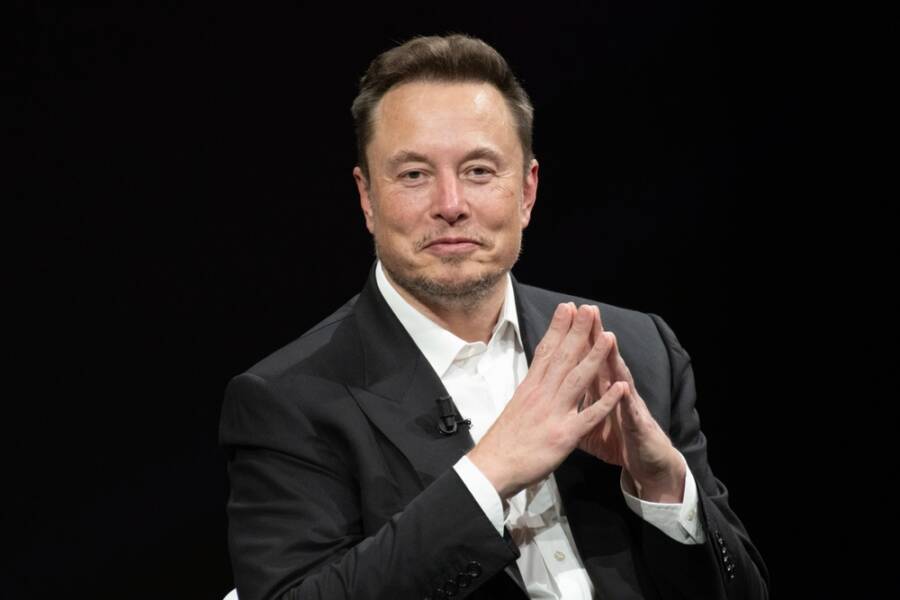How Elon Musk turns sci-fi into a blueprint for tomorrow
The future wasn’t just imagined by sci-fi writers but blueprinted by billionaires. Watching Elon Musk’s evolution: he doesn’t just read sci-fi—he lives it.
Here is the twist: most of us see satire, irony, and cautionary tales, but he seems to see a to-do list. So, from space colonies to brain chips, he picks from the shelves of fiction to build the kind of future that sounds part genius, part game mod. The question is, what happens when you hear what you want from the stories meant to warn you?
More than a fanboy
He had never been shy about wearing his sci-fi heart on his sleeve. The genre isn’t just entertainment for him. So, whether it’s quoting The Hitchhiker’s Guide to the Galaxy during Tesla’s presentations or tweeting about Deus Ex, as well as referencing Foundation as a moral compass for SpaceX, Musk seems to see science fiction as both an instruction manual and an inspiration.
He made it clear, actually, that many of his ventures are shaped by his own interpretation of the fictional world. So, companies like SpaceX, Neuralink, and now xAI all share the DNA of sci-fi influences.
Musk doesn’t take away the lessons we do from watching a movie (and this, itself, might be the most science fiction part of all).

Hitchhiker’s Guide to xAI—Satire turned into strategy?
Elon Musk launched xAI in 2023. The company aimed to uncover the true nature of the universe. This might sound grandiose, but the idea is borrowed from The Hitchhiker’s Guide to the Galaxy, a beloved sci-fi comedy by Douglas Adams.
A supercomputer reveals the answer to life and everything is nothing more than… 42. Well, that was a punchline, not a prophecy; just a cosmic joke about humanity’s obsession with overthinking.
For Musk, 42 is no joke. He chose July 12th, which is the 193rd day of the year (1+9+3 = 13, and 13 x 2 = 26… ok, you get it; or not)—reflecting his obsession with the number.
While Adam’s book ridiculed the idea of rich elites fleeing Earth in golden ships, Musk included in his speeches Mars colonization as a necessity, looking like this part was taken not as a satire, but as sound advice.
Critics always talk about the fact that Musk misses the point. Hitchhiker doesn’t celebrate tech utopias; it questions them. They laugh at this kind of techno-elitism that Musk himself seems to embody. Anyway, for him, irony is probably optional.
The Martian Escape Plan
Foundation, the series by Isaac Asimov, is just another cornerstone of Musk’s belief system. The novel follows Hari Seldon’s predictions on the fall of the Galactic Empire and the way he sets up a foundation to preserve knowledge.
When talking about the SpaceX mission, Musk often references this series and his similar goal: to make life multiplanetary.
The parallel is clear. He sees himself as some modern-day Seldon, guarding against civilization’s collapse and preparing humanity to leave Earth. For Musk, colonizing Mars is not about escapism, but survival.
Critics point out that Foundation was never about ditching your home planet but about the first sign of trouble. It’s about collective knowledge, cultural continuity, and preserving human values. Johnny Diamond (the editor of Literary Hub) notes that Musk seems to interpret Asimov’s thought through techno-capitalist lenses, skipping the social and philosophical complexities in favor of spectacle.

Neuralink and Deus Ex: Cyberpunk fire
A longtime admirer of Deus Ex, the legendary cyberpunk video game, setting a dystopian future where megacorporations enhance humans with technology, Musk seems to draw inspiration from here as well.
In the game, things don’t go well. All the power is taken by the elite, and conspiracies flourish. Humanity is altered in ways that raise moral questions, and yet, Musk’s startup, Neuralink, seems almost modeled after this future.
The goal? Merging the human brain with computers? If it doesn’t sound familiar, you should take a look at any great cyberpunk warning tale.
Fans of the game have already poked fun at Musk, suggesting he resembles more the game’s villainous billionaires than the idealistic protagonists.
Sheldon Pacotti himself, one of the original writers, commented that while the Deus Ex world was a warning, Musk kind of treats it like a sandbox for innovation.
When fiction becomes a framework—the danger of selective reading
The bigger issue seems to be Msk’s selective sci-fi reading. This is not only quirky. Let’s be serious! When the richest man in the world uses fiction as the framework of reality, the stakes are huge. He is doing more than building rockets and brain chips: he’s shaping narratives, dreams, and public imagination.
A question is raising, not only raising, but almost suffocating to be asked. What happens when dystopias are rebranded as roadmaps? Satire becomes strategy, and what do we lose?
Science fiction has always been a mirror, and it shows the risks of blind ambition. It reflects, in dynamic, dramatic, even spectacular ways, the cost of ignoring humanity in pursuit of progress.
In Musk’s hands, it becomes a setlist of what to try next. He stripped out the warnings and kept the wonder.

A future filtered through fantasy
The way Elon Musk uses science fiction is clearly deeply personal, and here is where the risk appears. Instead of wondering, “Should we?” he seems to be wondering, “Why haven’t we yet?” All his initiatives are bold, yes, but they tend to skip over reflection, ethics, and inclusivity.
He imagines a future of neurally enhanced humans, AI-driven knowledge quests, and interplanetary escape pods. The collective, emotional, and messy side of human beings often fades in this vision. Sci-fi is not about spaceships and lasers; it’s about stories of who we are and who we might become. And we have Musk trying to speedrun the stories without fully reading the chapters.
Who writes the script?
The world of sci-fi is full of visionaries, but also full of warnings. Elon Musk seems to be a main character in a galactic epic, with equal parts cosmic wanderer and inventor. The issue is that he might be flipping through cautionary tales like they are just comic books.
The final thought is that we might end up living in someone else’s fiction without realizing how we play our part if we’re not paying attention.
What are your thoughts on this?














